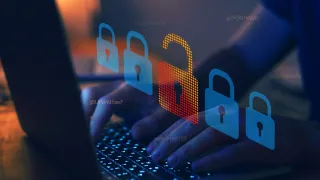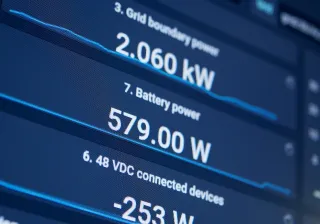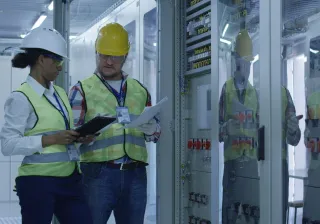Cybersecurity is extremely important for any functioning society, and recent global events have further scaled up its significance. But cybersecurity technologies must also be sustainable. VTT’s new SUNSET-6G project evaluates the sustainability of these technologies from many different angles.
Cybersecurity technologies protect our digital assets, ranging from personal digital belongings to societal and state level digital belongings, and their connectivity. This is all crucial for our society and therefore it is natural to assume that there should be no dearth of resources for ensuring it. However, the sustainability of cybersecurity is also extremely important, but rarely discussed.
For example, all resources should not be concentrated on certain types of threats, leaving no resources for protection from other kinds of threats. A balanced approach should be adopted, where protection from all threats at the same time is always possible with existing computing, memory, and spectrum resources. Furthermore, security is also an enabler of sustainability, since efficient security ensures that resources are used only for legitimate purposes. Therefore, the SUNSET-6G project investigates sustainable cybersecurity approaches in the 6G ecosystem. Sustainability of security technologies is evaluated in terms of energy, spectrum, processing, and memory, as well as human resources.
6G networks call for decentralized security
6G networks will be highly distributed and decentralized much like a mesh of self-organized autonomous networks working in unison. Since the 6G wireless systems target to meet the needs of emerging services with unnoticeable latency, unlimited bandwidth, and fool proof security, for instance, having the network control physically in the vicinity of such services will be adopted.
In a digitally immersive world, for example metaverse where physical, human, and digital realities are intertwined, limitations in latency, bandwidth and security should be carefully addressed. Bandwidth and latency limitations can be overcome, thanks to huge research efforts in terahertz and ultra-reliable low latency communications.
However, security requires more than the current directions. The next generation network security procedures and approaches must be distributed and decentralized, unlike the existing centralized approaches. The SUNSET-6G network strives to achieve that.
Sustainable cybersecurity a major challenge
The distribution of virtualized network functions has already begun, such as pushing certain network functions to the edge, and thus, distributed network control, far edge and edge beyond MEC, requires distributed security. Similarly, novel 6G applications and use-cases require extremely spontaneous security decision-making, which will not be possible with centralized architectures. Artificial Intelligence (AI) has become central to the very function of novel networking and management systems and functions.
Since traditional or centralized AI has a wide range of challenges, distributed AI such as Federated Learning (FL) requires distributed security in contrast to the existing security approaches. All these challenges sum up to a major challenge of sustainability that is mostly overlooked in research and development, i.e., sustainability of security technologies, systems, and approaches.
Solutions developed with industrial partners
The SUNSET-6G project is carried out in cooperation with prominent industrial partners with vast relevant experience in the cybersecurity domain: WithSecure, Nokia, Satel and Eficode. This makes the SUNSET-6G a very valuable project.
WithSecure will evaluate their solutions for sustainability, and how their distributed solutions, security solutions on endpoints, can be further improved. Nokia, through its vast experience in the telecom industry, will provide useful insights on end-to-end sustainable 6G security architecture in the project. Furthermore, the SUNSET-6G project will have many benefits for Nokia ranging from 6G security architecture to sustainability in their offerings. Satel, with experience in critical industrial systems, where security is extremely important, will provide important insights on remote device (UE) side. The SUNSET-6G project is important for Satel to improve overall 6G wireless security, including robustness and reliability. Eficode, with huge experience in software lifecycle and digitization, can provide the best cyber security solutions for their customers, leveraging the research conducted in the SUNSET-6G project.
The SUNSET-6G (Sustainable Network Security Technologies for 6G) project is a three-year Business Finland funded research project, under the 6G-Bridge program. All the research will be performed at VTT Technical Research Centre of Finland. The project is led by Dr. Ijaz Ahmad.




